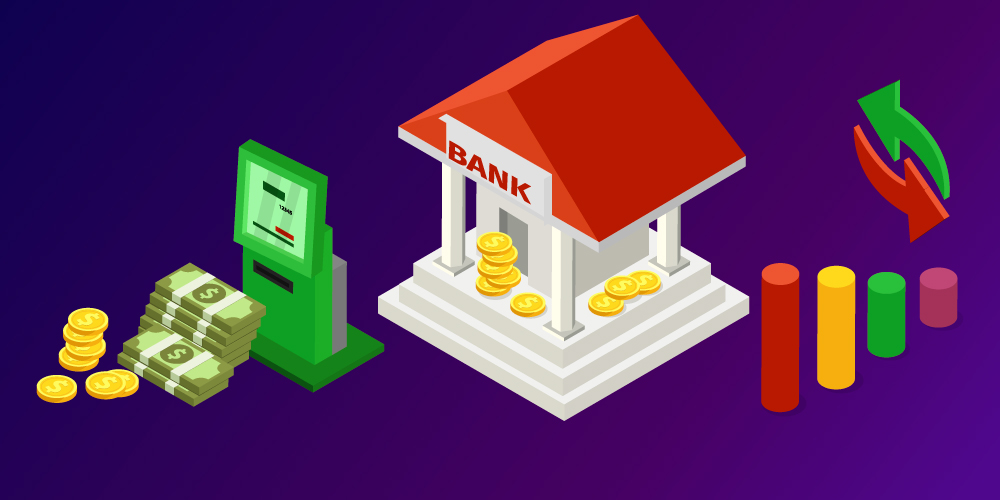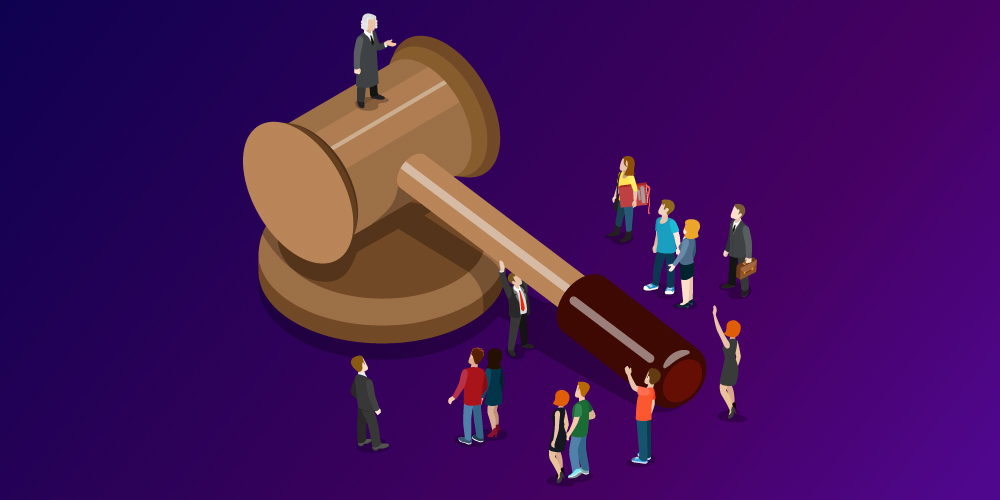Although most cryptocurrency-related activities are covered by Russian law in one way or another, the draft law on digital financial assets which will specifically regulate cryptocurrency-related activities in Russia, has not yet been adopted. It is unknown when the Russian Federation will begin to adequately regulate the sphere of virtual currency.
Introduction of the legal and regulatory framework
Consideration of the draft law, which was first submitted to the state Duma in December 2018, was repeatedly postponed due to the diametrically opposite positions of the government, as well as due to significant criticism from ministries, market participants and businesses that consider the project impractical.
The project was developed without the participation of representatives of the crypto market, and it received a lot of criticism regarding the definition of digital currency, as well as regulatory actions for the circulation of digital currency. Representatives of the crypto industry noted that this bill will be harmful from such points of view as economic, social and technological.
The bill provides that you will be responsible not for buying crypto assets, but for trying to sell them (turnover). You can buy crypto assets, but only on foreign crypto platforms. However, such resources cannot operate on the territory of Russia, and digital assets purchased on foreign exchanges must be declared. The bill effectively prohibits the expansion of cryptocurrency circulation opportunities and makes digital investment more difficult.
In April 2020, representatives of large businesses together with the Russian Union of Industrialists and entrepreneurs sent a letter to the Prime Minister asking for the speedy adoption of the bill, since in the context of a pandemic and a difficult economic situation, the use of digital assets will help attract capital, as well as allow businesses to use digital opportunities for recovery.
The government decided to ban the issue and use of virtual currency as a means of payment. Moreover, the exchange of virtual currency for Fiat money is possible only through specialized operators that will have to identify the owners of the currency.
Cryptocurrency is equated to a monetary surrogate, the issue of which is banned throughout the Russian Federation. Crypto assets are not protected or supported by the Bank of Russia.
Banking services and money transfers

The Central Bank of Russia opposes the introduction of cryptocurrency in the country. However, it is considering introducing a state crypt.
Immediate legislative action was hindered by a poor understanding of the very essence of blockchain tools. The Central Bank’s policy is ambiguous, and sometimes even contradictory. At first, the Central Bank opposed “money substitutes” and was against the introduction of digital coins into the monetary system, but since then it has recognized the possibility of launching an official cryptocurrency.
Business interest in virtual money is explained by the fact that its use helps to reduce transaction costs. The Central Bank intends to study the proposal to create a cryptocurrency linked to the price of gold, which could be used for mutual settlements with other countries.
The Central Bank will regulate all operations related to cryptocurrencies. In March 2019, he sent a draft order to the state Duma for discussion, in which he proposes to limit the annual volume of cryptocurrency assets available for purchase to unqualified investors.
It is expected that the transaction will be restricted. The Central Bank is going to determine the specific threshold separately, and it will correspond to the maximum annual amount determined for unqualified investors By the draft law on crowdfunding (600,000 rubles).
Professional participants in the securities market will not act as intermediaries, but exchange operators (banks, stock exchanges, and depositories) will have to track all transactions with the Central Federal Depository and keep records of their total value.
Protection against money laundering
Recommendations from the financial action task Force on money laundering (FATF) have been introduced, recommending that cryptocurrency service providers follow the same anti-money laundering procedures that are required of traditional financial companies. The first test of the FATF are to be held in 2020.
The state Duma has prepared proposals for regulating cryptocurrencies in accordance with the FATF requirements. The problem is not in the cryptocurrencies themselves, but in the illegal purposes for which they are used, since digital money is not regulated.
Meanwhile, the Supreme court applied the term cryptocurrencies in a 2015 ruling. It clarifies that the articles of the Criminal code on the legalization of criminal proceeds should also be extended to crypto-assets. The objects of illegal activity may also include ” assets converted from crypts that could have been acquired during criminal actions.”
Rosfinmonitoring stated that in the absence of a legal framework and state supervision in terms of the issue and circulation of virtual currency, it is the main vulnerability of the economy. According to their data (in connection with criminal activity), despite the legal uncertainty, crypto-assets are equated to property and have monetary value.
The use of cryptocurrencies in money laundering is subject to article 174.1 of the Criminal code. Moreover, law enforcement agencies already apply this article in cases where the cryptocurrency was used to conceal the true sources of funds, and give them a completely legal character.
Regulation of exchanges
The activities of cryptocurrency exchanges that exchange Bitcoins and other popular cryptocurrencies are currently not regulated, with the exception of categorical bans from regulators. Recently, cryptocurrencies have become widespread all over the world and are used for various purposes, from accumulating money and settlements, to initial coin offerings.
Financial market regulators (the Central Bank and Rosfinmonitoring) have repeatedly warned citizens that all operations using cryptocurrencies are speculative.
The law on digital financial assets and on attracting investment through investment platforms requires the opening of representative offices or subsidiaries of foreign companies for cryptocurrency trading, which creates legal uncertainty for crypto exchanges. However, the largest crypto exchanges have opened representative offices in Russia. However, the lack of any standards for their accreditation can be problematic.
Regulation of the mining industry

In judicial practice, a stable legal position has been formed that the mining of crypto-coins is an entrepreneurial activity. Accordingly, miners who purchase equipment for their activities do not have the status of a consumer in relations with sellers, and from the point of view of customs authorities, these goods are considered as not intended for personal use.
This circumstance significantly affects the amount of customs payments. As a rule, the courts do not agree that the buyer of mining equipment is an ordinary consumer, since the very specifics of the goods and the purposes for which this equipment is used indicate otherwise.
The courts concluded (which is already well known and does not need to be proven) that cryptocurrencies are used in the financial market, have their own independent trading price, and are convertible. Cryptocurrencies can be exchanged for currencies such as the US dollar, Euro, ruble, and other Fiat currencies. They are also used as a settlement and payment instrument in accordance with part 1 of article 61 of the Civil procedure code.
Thus, the buyer purposefully mines cryptocurrency using computer equipment purchased from the seller, in order to systematically extract profit in the form of a convertible and solvent (liquid) cryptocurrency.
In the Russian market, energy suppliers must make a concerted effort to detect cryptocurrency miners, as many civilians are able to hide these activities.
The state Duma plans to introduce administrative responsibility for actions related to the crypt, which are contrary to the laws of the Russian Federation. As the Chairman of the state Duma Committee on financial markets Anatoly Aksakov said, everything using cryptocurrency will be illegal, including such actions as mining, organizing and issuing, circulation and launching crypto-exchanges. It is still allowed to own it, but only if citizens purchased it in accordance with foreign legislation in foreign crypto exchanges and exchanges, but not in the Russian Federation.
Mining and other activities related to cryptocurrency will be subject to penalties, the amount of which has not yet been determined.
Criminal and civil law enforcement
Cryptocurrencies have a number of characteristics that have not yet been investigated or addressed in legislation, which means that offenders still have unprecedented opportunities to commit crimes. There are three main factors that help attackers:
- ability to remain anonymous when using cryptocurrencies;
- decentralized nature of the asset;
- there is no legal regime regulating their turnover.
Cryptocurrencies have become a tool for cross-border money laundering. However, there are other crimes that are made possible by the use of cryptocurrency. For example, actions aimed at preventing forced debt collection, tax evasion or money laundering, uncontrolled capital flows, and lack of consumer rights guarantees. In general, the factor linking these crimes is the lack of legal regulation of the use of cryptocurrencies.
In addition, the weak security of cryptocurrency service providers (primarily exchanges and wallet services) means that they are often attacked by hackers, and customer funds are lost.
The government plans to develop a legal mechanism for seizing crypto assets for the purpose of confiscating them. The relevant proposals, which must be submitted by December 31, 2021, will be prepared by the Ministry of internal Affairs together with Rosfinmonitoring, the Prosecutor General’s office, the UK, the Ministry of justice, the FSB, the Federal customs service and the Federal bailiff service with the participation of the Supreme court.
To be continued.


